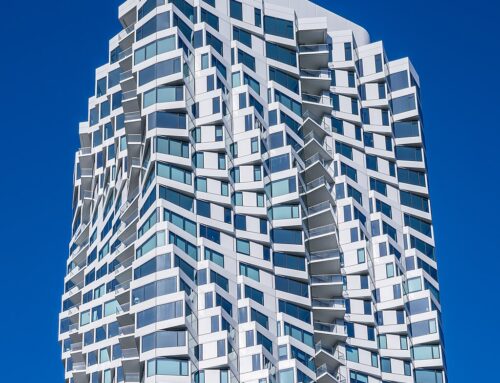7 Warning Signs for a Risky Condo Purchase
The whole process of finding your dream condominium unit can be both exciting and exhausting. Much more if it is your first time acquiring a property. From searching online listings for available inventory, to property viewing, it can take so much time, effort and energy! But at the end of your buying journey, when you finally find the property best suited for you, it can also be beyond rewarding.
Although condominium ownership is a convenient way to own a property, there are several important things to consider before making a purchase. Aside from the usual pros and cons in buying a property, there are also several red flags that are the ultimate deal breaker that when you spot one, you better stop and walk away. Otherwise, you will just end up sabotaging your own property.
Poor Maintenance
One of the most obvious red flags when looking at a condominium property is poor maintenance. Why would you even invest in a property that looks rundown! Even if the listing price is lower than the average, the condition of the building is a sign that the management is not properly taking care of the property. This can include things like broken or missing tiles, peeling paint, or dirty common areas. You might be able to save money upon purchase but in the long run, the property will endlessly drain your wallet.
Additionally, condominiums have monthly dues that the management can use to address both the exterior and interior issues of the building. If the HOA or the management is properly overseeing the operation, why would they leave the building maintenance unchecked? Poor maintenance can lead to larger problems down the road and may indicate that there are more serious issues with the property. As a future condo owner, you don’t want to start your investment with a messy property.
Legal Issues
Another important thing to check before buying a condominium is legal issues associated with the property that can affect its future resale value or your rights as future owner. For all you know, you could be buying a condo unit that is sitting on a pile of lawsuits, or disputes with the management team. Some of the leading causes of property lawsuits are construction defects and disclosure issues. No matter how good the property is presented, or how exciting the amenities are, sellers are required by law to disclose any known material defects in the property that may affect the safety of the owner or the value of the property.
It is also important that you familiarize yourself with the governing documents of the property. Ignorance of the current policies and regulations will not excuse you from any violation you might commit. Once you are already settled in, there is no backing out except when you sell your unit. If there are several legal issues associated with the property, it may be a sign that there are larger issues with the management or the property itself. It would be in your best interest to stay away from problematic properties.
High Turnover
There are several reasons why turnover rates may be high in a particular condominium property. For one, it could be the lack of owner occupancy. As a result, people come and go as the units are only used for rental purposes. However, this can also affect the quality of life among owners residing in the property since renters are less concerned about the unit, shared spaces and the overall community. It is also impossible to establish a sense of belongingness as you have no idea how long your neighbor is staying.
Other reasons would be financial instability or other issues within the building or management. It could be a sign that there are larger problems at play. For example, if there are ongoing disputes between the homeowners association and individual owners, or if the building has a history of costly repairs or maintenance issues, it may lead to owners selling their units and moving out.
Lack of Communication
As cliche as it sounds, communication is always the key in keeping a healthy relationship be it personal or business. And this is also what you need when you decide to purchase a condo unit. For the first three (3) months of your occupancy, there will be adjustments and you won’t be able to memorize everything at once. You need the help of the HOA or the management. If the management team is unresponsive or difficult to reach, it can be a red flag. You want to know that you can easily get in touch with someone if there is an issue with the property. Additionally, if the management team is not communicating important updates or changes, it could be a sign that they are not effectively managing the property.
Financial Issues
Before purchasing a condominium, it’s important to review the financial statements and ensure that the property is financially stable. And by financial statements, it means looking closer at the HOA dues, special assessments, insurances and property values. Most often, these four (4) aspects are where financial issues among property developments arise. For example, HOA dues are very common among condominium properties. But if the dues consistently increase over time, this can be a source of frustration among owners especially if it is too high and there is no transparency report on how the funds are used.
You should also look at how often the HOA asks for special assessments. This is yet again another cost on top of the monthly recurring dues. It’s important to understand that if there are issues with the property’s finances, it could result in higher fees for residents or a decrease in property value. Additionally, if the property is not financially stable, it may be difficult to secure a mortgage for the property.
Overly Restrictive Rules
Unlike single family homes, condominium ownership comes with a variety of rules and regulations that condo owners must strictly observe and follow. Although sometimes, the policies imposed by the HOA can be too overly restrictive or unreasonable, that can lead to frustration among the owners. This is another red flag that you must watch out for. You don’t want to spend your lifetime getting stressed out just because you cannot replace your flooring design!
Another thing to watch out for is if there are rules that prohibit pets or limit the number of guests you can have. If yes, then it may not be the right property for you. Make sure you carefully review the rules before purchasing a condominium to ensure that they are reasonable and align with your lifestyle.
Inadequate Parking
In areas with high population density and limited parking options, the last thing you would want is coming home with no idea whether or not you can safely park your car inside the compound. Unfortunately, not all condominium developments have adequate parking spaces. Sometimes, property management even charges additional fees for parking which can be a major inconvenience for residents.
Inadequate parking can have a number of negative consequences for residents. For one, it can lead to increased traffic congestion and difficulty finding a parking spot, which can be frustrating and time-consuming. It can also lead to safety issues, as residents may be forced to park in areas that are not well-lit or that are far from the building entrance. If this is something you don’t want to experience, it would be wise not to invest in this type of property.
Above are some of the non-negotiable attributes of a condominium property that you must avoid at all cost if you want to relax comfortably at your home. If you want to gain more insights about condominiums in San Francisco or if you are interested in buying a unit, feel free to contact us. We are more than happy to assist you.




